★★★½
“Before she was famous…”
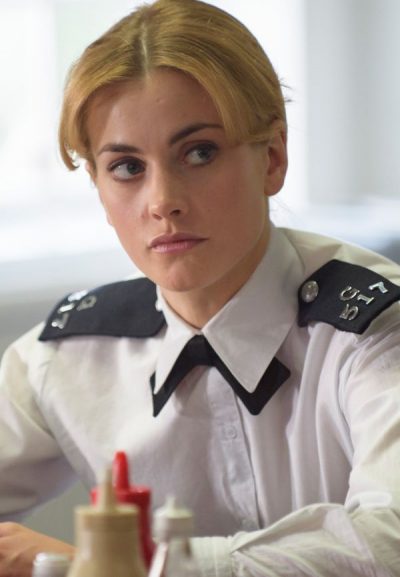 Origin stories are all the rage, it appears. Though it’s probably just coincidence we watched this prequel to Prime Suspect the same week that Joker came out. It’s not quite as successful in terms of reinventing an iconic character, or shedding light on how they became who they are. This is largely because lead actress Martini is not Helen Mirren. Though it would unfair to hold that against her – because, let’s face it, who is? While I found it interesting to see some of the early influences which turned Jane Tennison into who she is, what she became is more notable than how she got there. It’s probably more enjoyable if you can separate them, and just enjoy this on its own terms, as a period police procedural.
Origin stories are all the rage, it appears. Though it’s probably just coincidence we watched this prequel to Prime Suspect the same week that Joker came out. It’s not quite as successful in terms of reinventing an iconic character, or shedding light on how they became who they are. This is largely because lead actress Martini is not Helen Mirren. Though it would unfair to hold that against her – because, let’s face it, who is? While I found it interesting to see some of the early influences which turned Jane Tennison into who she is, what she became is more notable than how she got there. It’s probably more enjoyable if you can separate them, and just enjoy this on its own terms, as a period police procedural.
It’s 1973, and we join the 22-year-old WPC 517, Jane Tennison (Martini), as she tries to find a footing in her first posting, to Hackney Police Station in East London. There, she has to cope with a time where women police officers were largely sidelined to making tea and taking messages. However, one of the detectives there, D.C.I. Len Bradfield (Reid) takes her under his wing, as the investigation begins into the murder of a prostitute, found strangled with her own bra. Meanwhile, long-term criminal Clifford Bentley – against whom Bradfield has a grudge – has barely got out of jail, before he and his family are planning a new robbery. But Jane is about to discover that things are not always as cut and dried as she’d like, and that the law and justice can be different, too.
It’s when the heroine is forced to confront these dilemmas that the show is at its most interesting. For example, when Tennison witnesses a colleague roughing up a suspect in the murder, actions which could allow them to go free. Should she speak up or keep silent? There are no easy answers, and depicting the dramatic tension is where Martini is at her most effective, along with trying to deal with her “helicopter mother”, who doesn’t appreciate her little girl is all grown up. [As an aside, there’s no denying the actress does bear more than a slight resemblance to a young Helen Mirren. Compare the pic on the right to this one of Mirren, from 1972, a year before this takes place]
Of course, if you’ve seen the episodes with Tennison all grown up, you’ll not be surprised by much here. There’s no way, for example, that Jane and Len are ever going to end up happily ever after. That said, the double-whammy in which this is accomplished was undeniably effective. It goes some way to explaining her aloofness in middle-age, as the scars of her early experiences. Being able to hang more personality trains on FutureJane, in a similar way, would have helped link this to what was to come. Instead, it’s just a little too disconnected, though on its own merits, we still were solidly entertained.
Dir: David Caffrey
Star: Stefanie Martini, Sam Reid, Blake Harrison, Alun Armstrong
a.k.a. Prime Suspect 1973





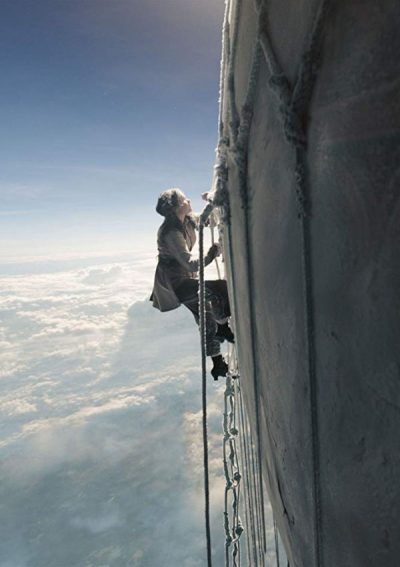 I was genuinely stoked when I got to the end of this one, which details the derring-do of 19th-century pioneers James Glaisher (Redmayne) and Amelia Wren (Jones). The former is a scientist in the fledgling field of meteorology, who wants to obtain data from the upper atmosphere. The latter is a balloon pilot, carrying on despite the death of her husband on a previous flight. Together, they team up, to fly higher than any person had ever gone before. Indeed, further than even they wanted to go, as a frozen valve prevents them from descending when they need to do so. With Glaisher out of commission through oxygen deprivation, it’s up to Wren to climb, by herself, up the outside of the balloon, in order to reach the top and clear the valve.
I was genuinely stoked when I got to the end of this one, which details the derring-do of 19th-century pioneers James Glaisher (Redmayne) and Amelia Wren (Jones). The former is a scientist in the fledgling field of meteorology, who wants to obtain data from the upper atmosphere. The latter is a balloon pilot, carrying on despite the death of her husband on a previous flight. Together, they team up, to fly higher than any person had ever gone before. Indeed, further than even they wanted to go, as a frozen valve prevents them from descending when they need to do so. With Glaisher out of commission through oxygen deprivation, it’s up to Wren to climb, by herself, up the outside of the balloon, in order to reach the top and clear the valve.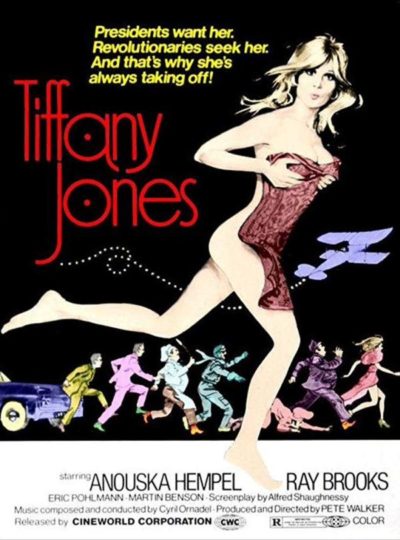 Fashion model Tiffany Jones (Hempel) finds herself dropped into the middle of international intrigue, after President Boris Jabal (Pohlmann), leader of the Eastern European state of Zirdana, takes a shine to her during a state visit to Britain. It’s supposed to be a trade negotiation, but is really to allow Jabal to broken an arms deal with some shady Americans. Her meeting the President brings her to the attention of two factions of Zirdanian rebels.
Fashion model Tiffany Jones (Hempel) finds herself dropped into the middle of international intrigue, after President Boris Jabal (Pohlmann), leader of the Eastern European state of Zirdana, takes a shine to her during a state visit to Britain. It’s supposed to be a trade negotiation, but is really to allow Jabal to broken an arms deal with some shady Americans. Her meeting the President brings her to the attention of two factions of Zirdanian rebels.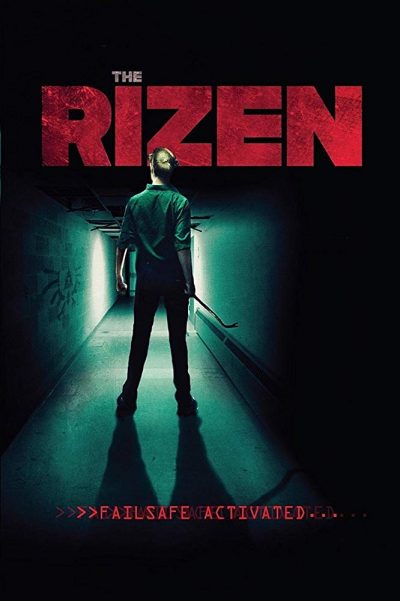 This is about the third Lovecraftian film I’ve seen with a heroine in the past year or so, after
This is about the third Lovecraftian film I’ve seen with a heroine in the past year or so, after 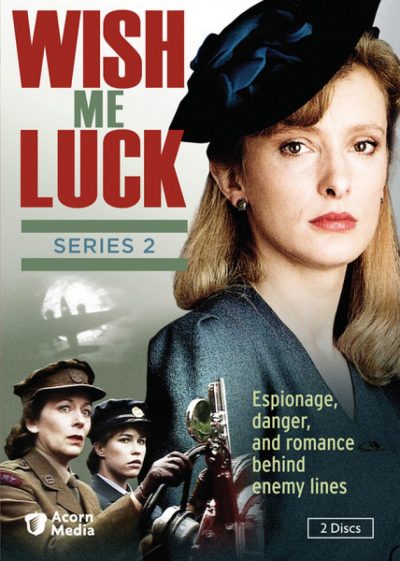 This British TV series ran for three series from 1988 through 1990, with 23 episodes (each an hour long including commercials) in total. The same creators had previously been responsible for another WW2-based show, Tenko, about women in a Japanese prisoner-of-war camp after the fall of Singapore. The time period here is similar – the second half of World War 2 – but the focus moves from the Far East to Occupied Europe, in particular, France. At this point, the Allies were sending in agents to assist the local Resistance – and as
This British TV series ran for three series from 1988 through 1990, with 23 episodes (each an hour long including commercials) in total. The same creators had previously been responsible for another WW2-based show, Tenko, about women in a Japanese prisoner-of-war camp after the fall of Singapore. The time period here is similar – the second half of World War 2 – but the focus moves from the Far East to Occupied Europe, in particular, France. At this point, the Allies were sending in agents to assist the local Resistance – and as 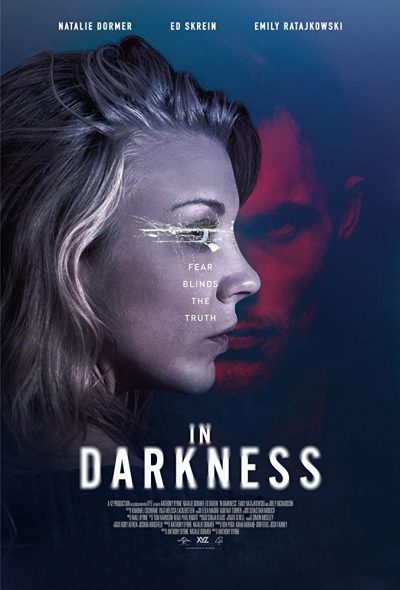 I literally had to check at the end of this, to see if M. Night Shyamalan had been involved. Because rarely since the likes of Signs – or, worse still, The Village – has a final twist so completely derailed a movie. As soon as it happened here, I was immediately listing off the scenes previously which now made absolutely no sense at all. While it’s hard to provide more information without massive spoilerage, it turned a film which was doing not badly, into one which is a poster-child for poorly-conceived ideas.
I literally had to check at the end of this, to see if M. Night Shyamalan had been involved. Because rarely since the likes of Signs – or, worse still, The Village – has a final twist so completely derailed a movie. As soon as it happened here, I was immediately listing off the scenes previously which now made absolutely no sense at all. While it’s hard to provide more information without massive spoilerage, it turned a film which was doing not badly, into one which is a poster-child for poorly-conceived ideas.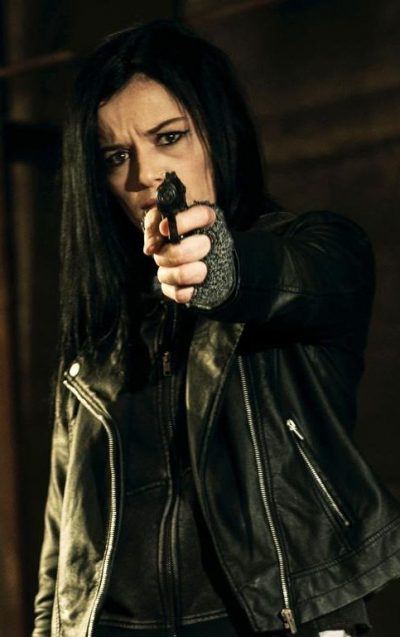 This wasn’t quite what we expected. In fact, replace “quite” with “at all”. It starts off as looking like some kind of revenge porn, with pathologist Margaret Powers (Tyson) kidnapping Finnbar (Ward), the man she’s certain murdered her son. Finnbar was apparently able to get away with it, because he was the son of a notorious local criminal, Tommy O’Neil (Hayman). She wants Finnbar to confess to his crime, and recruits her son’s ex-girlfriend, Zoe (Jarvis) to help in getting her vengeance. Initially, the capture goes well, with the two women then holing up in an abandoned warehouse by the docks, to begin the interrogation. However, this is where the film starts to diverge from the expected, as it turns out Zoe’s intentions are not in line with Margaret’s, as they initially appeared.
This wasn’t quite what we expected. In fact, replace “quite” with “at all”. It starts off as looking like some kind of revenge porn, with pathologist Margaret Powers (Tyson) kidnapping Finnbar (Ward), the man she’s certain murdered her son. Finnbar was apparently able to get away with it, because he was the son of a notorious local criminal, Tommy O’Neil (Hayman). She wants Finnbar to confess to his crime, and recruits her son’s ex-girlfriend, Zoe (Jarvis) to help in getting her vengeance. Initially, the capture goes well, with the two women then holing up in an abandoned warehouse by the docks, to begin the interrogation. However, this is where the film starts to diverge from the expected, as it turns out Zoe’s intentions are not in line with Margaret’s, as they initially appeared.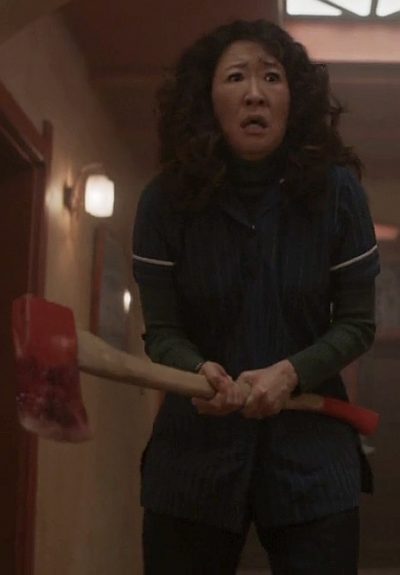 [Warning: this piece will contain significant spoilers for the show. READ ON AT YOUR OWN RISK!] It was always going to be difficult, if not impossible, for the second series of Killing Eve to match the brilliance of the first. That had ended with mousy MI-5 desk jockey Eve (Oh) stabbing ruthless assassin Villanelle (Connor), as they lay on a bed – platonically, but you could cut the sexual tension with a knife. Where would things go from there? The answer, unfortunately, is nowhere particularly much, except for some thoroughly unconvincing plot twists, such as Villanelle going to work for MI-5. Hello? Did everyone forget her cold-blooded murders of agents Bill Pargrave and Frank Haleton in season one? Let’s just pretend she’s one of us, and send her off on a mission without so much as a background check, m’kay?
[Warning: this piece will contain significant spoilers for the show. READ ON AT YOUR OWN RISK!] It was always going to be difficult, if not impossible, for the second series of Killing Eve to match the brilliance of the first. That had ended with mousy MI-5 desk jockey Eve (Oh) stabbing ruthless assassin Villanelle (Connor), as they lay on a bed – platonically, but you could cut the sexual tension with a knife. Where would things go from there? The answer, unfortunately, is nowhere particularly much, except for some thoroughly unconvincing plot twists, such as Villanelle going to work for MI-5. Hello? Did everyone forget her cold-blooded murders of agents Bill Pargrave and Frank Haleton in season one? Let’s just pretend she’s one of us, and send her off on a mission without so much as a background check, m’kay?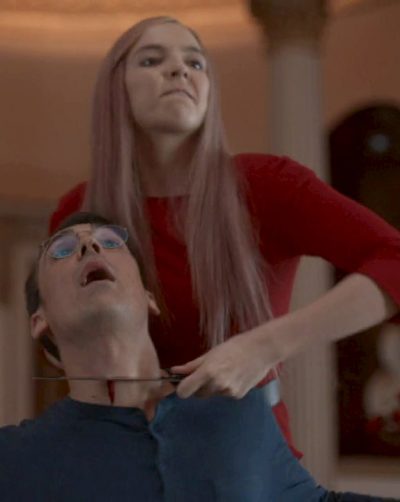 After becoming an under-the-radar hit the first time, the second set of episodes seems to have left a lot of people unsatisfied, for a variety of reason. And the ratings reflect this. Having managed the almost unprecedented feat of increasing almost every week the first time round, this season saw fewer viewers for every part after the debut, than the equivalent in series one. Maybe renewing it the day after that opening episode was a mistake? The final scene of this series ends in a mirror image of its predecessor, Villanelle shooting Eve in a fit of pique after she responds to Villanelle’s declaration of love with “You don’t know what that is,” and walks away. Of course, the renewal and critical acclaim basically make it certain Eve isn’t dead. So it’s less a case of “What will happen?”, than “What cheat will the writers use to get out of the corner into which they’ve painted themselves?” I’m going with a bullet-proof vest.
After becoming an under-the-radar hit the first time, the second set of episodes seems to have left a lot of people unsatisfied, for a variety of reason. And the ratings reflect this. Having managed the almost unprecedented feat of increasing almost every week the first time round, this season saw fewer viewers for every part after the debut, than the equivalent in series one. Maybe renewing it the day after that opening episode was a mistake? The final scene of this series ends in a mirror image of its predecessor, Villanelle shooting Eve in a fit of pique after she responds to Villanelle’s declaration of love with “You don’t know what that is,” and walks away. Of course, the renewal and critical acclaim basically make it certain Eve isn’t dead. So it’s less a case of “What will happen?”, than “What cheat will the writers use to get out of the corner into which they’ve painted themselves?” I’m going with a bullet-proof vest.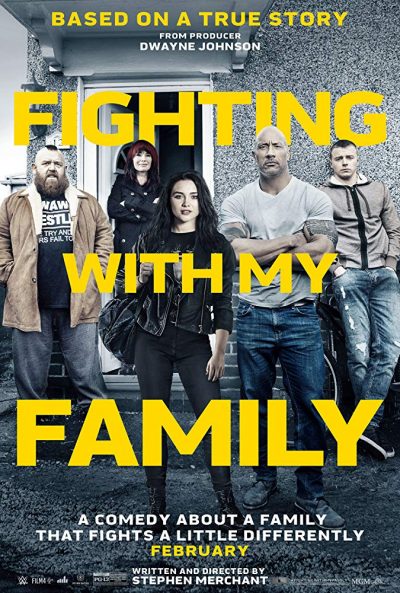 This biopic of WWE Women’s Champion Paige, a.k.a. Saraya Knight from the English seaside town of Norwich, gets a lot of things right about professional wrestling. In particular, it strikes a good balance between the various aspects – positive and negative – of the sports entertainment business. Over the past twenty years, Chris and I have been intermittently involved with the independent end of the wrestling scene, like Knight and her family, and this captures the low-rent showbiz aspects beautifully. Yet it doesn’t shortchange the seductive – almost addictive – appeal of performance for a responsive crowd, or the potential escape from a drab life it offers someone like Saraya/Paige.
This biopic of WWE Women’s Champion Paige, a.k.a. Saraya Knight from the English seaside town of Norwich, gets a lot of things right about professional wrestling. In particular, it strikes a good balance between the various aspects – positive and negative – of the sports entertainment business. Over the past twenty years, Chris and I have been intermittently involved with the independent end of the wrestling scene, like Knight and her family, and this captures the low-rent showbiz aspects beautifully. Yet it doesn’t shortchange the seductive – almost addictive – appeal of performance for a responsive crowd, or the potential escape from a drab life it offers someone like Saraya/Paige.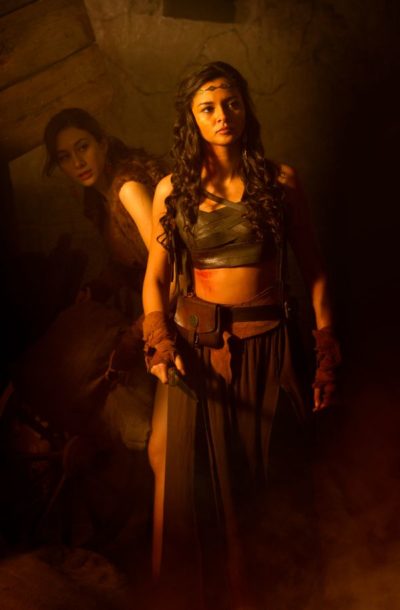 This has the potential to be truly bad, and you need to be willing to look past ropey production values, a possibly deliberately shaky grasp of period (unless “Daisy” really was a popular girls’ name in early medieval times…) and uncertainty as to whether or not this is intended to be a comedy. Yet, I have to admire its “everything including the kitchen sink” approach: throwing together elements from genres as disparate as Vikings, zombies, aliens, sword ‘n’ sorcery and female vengeance shows… well, ambition, at the very least.
This has the potential to be truly bad, and you need to be willing to look past ropey production values, a possibly deliberately shaky grasp of period (unless “Daisy” really was a popular girls’ name in early medieval times…) and uncertainty as to whether or not this is intended to be a comedy. Yet, I have to admire its “everything including the kitchen sink” approach: throwing together elements from genres as disparate as Vikings, zombies, aliens, sword ‘n’ sorcery and female vengeance shows… well, ambition, at the very least.